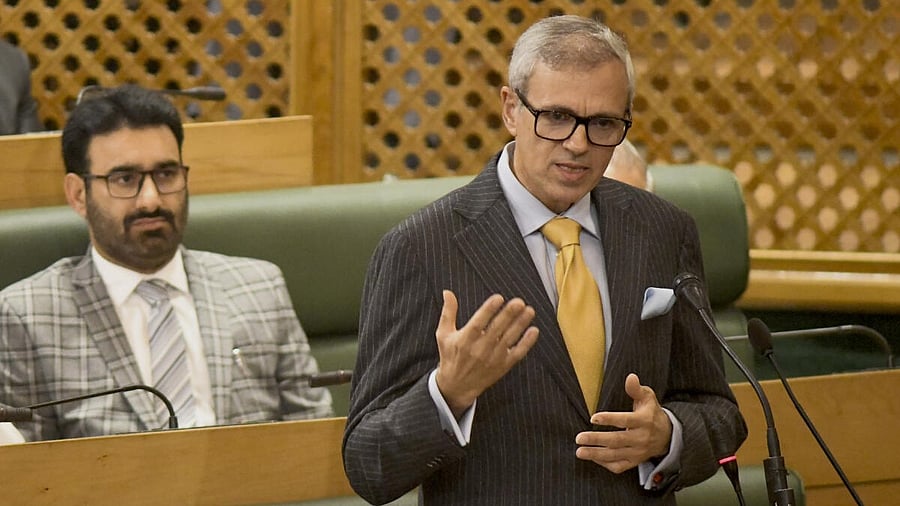
Omar Abdullah
Credit: PTI Photo
Srinagar: The political tension between the Omar Abdullah-led National Conference (NC) and the Lieutenant Governor (L-G) administration in Jammu and Kashmir has been escalating steadily.
The recent termination of two government employees under Article 311 of the Indian Constitution by the L-G, along with the rejection of Abdullah’s recommendation to retain the Union Territory’s Advocate General, has starkly underscored the growing central control over the region.
Despite the National Conference’s efforts to assert itself, the central government, under the leadership of L-G Manoj Sinha—appointed in 2020 by the BJP—has maintained a firm grip on governance since the formation of the newly elected government in October this year.
This growing centralisation of power was further solidified in the months leading up to the assembly elections, when the government approved a controversial amendment to the business rules outlined in the J&K Reorganisation Act of 2019.
The amendment significantly expanded the powers of the L-G, particularly over the transfer and posting of all-India service officers, including IAS and IPS officers, as well as police personnel, law and order, and judicial appointments.
A particularly contentious issue has been the transfer of a Jammu and Kashmir Administrative Service (JKAS) officer, previously serving as a deputy commissioner in the Jammu division, which has further aggravated tensions between the elected government and the Raj Bhawan.
The timing of this transfer has fueled dissatisfaction within the NC ranks, highlighting the growing divide between the UT’s political leadership and the L-G’s office.
In response to the mounting pressure, Abdullah has urged party legislators to exercise patience and focus on long-term goals, primarily the restoration of statehood to J&K. Speaking during a provincial meeting in Srinagar, Abdullah acknowledged the frustration of his party’s MLAs, who complained of widespread non-cooperation from officers, which they claimed was hindering their ability to resolve public grievances.
The MLAs raised concerns that even the most basic public issues remained unresolved, further deepening the sense of helplessness among the people.
Acknowledging these concerns, Abdullah reassured his party colleagues to hold on, suggesting that statehood might be restored by March, though this remains an uncertain timeline. The call for patience comes amid growing political pressure, as both ruling parties, NC and Congress, along with opposition groups like the PDP and various smaller parties, continue to demand the restoration of statehood.
The power tussle has broken out between the two sides at a time when the ruling parties – NC and Congress – and opposition parties including PDP and other smaller parties have been pushing for the restoration of statehood for Jammu and Kashmir which was bifurcated and downgraded into two union territories by the BJP-led government in 2019.